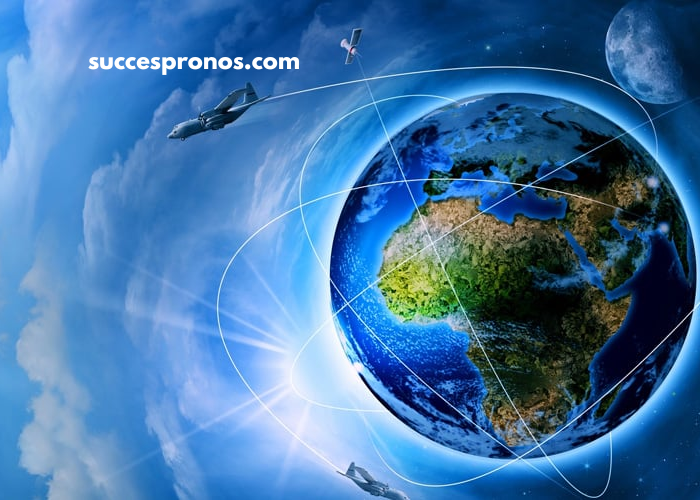
The evolution of technology has been nothing short of extraordinary. From the first simple lines of code to the exploration of the cosmos, human innovation has continually pushed boundaries and redefined what is possible. This article takes you on a journey through the intertwined realms of code and cosmos, highlighting the remarkable progress we’ve made in both fields and the exciting frontiers that lie ahead.
The Code Revolution
-
The Birth of Code
The story begins with the birth of code itself. In the mid-20th century, pioneering computer scientists like Alan Turing and Grace Hopper laid the foundation for the digital age. Turing’s concept of the universal machine and Hopper’s development of the first compiler paved the way for modern computing. With the invention of the transistor and the subsequent creation of the first microchip, the era of code was set into motion.
-
Software: The Soul of Machines
As hardware advanced, software became the lifeblood of computers. The development of high-level programming languages like Fortran, C, and eventually Python made it possible for humans to communicate complex instructions to machines. Software engineering emerged as a critical discipline, leading to the creation of operating systems, applications, and the internet itself.
-
The Internet Revolution
The internet was a pivotal moment in the code revolution. Tim Berners-Lee’s invention of the World Wide Web and the HTTP protocol changed the way we communicate, work, and play. The internet became a platform for information exchange, commerce, and social interaction on a global scale. The rise of e-commerce, social media, and search engines transformed society and laid the groundwork for the digital age.
-
Mobile and Beyond
The advent of mobile technology further accelerated the code revolution. Smartphones, powered by sophisticated software ecosystems, became an integral part of our daily lives. Mobile apps revolutionized industries like transportation, healthcare, and entertainment. With the emergence of 5G and the Internet of Things (IoT), the potential for code-driven innovations seemed boundless.
The Cosmos Connection
-
Space Exploration: A Cosmic Ambition
While the code revolution was unfolding on Earth, our ambition extended beyond the confines of our planet. Space exploration became a testament to human curiosity and determination. The launch of Sputnik in 1957 marked the beginning of the space age. NASA’s Apollo program, which put a man on the moon in 1969, remains one of the greatest achievements in human history.
-
The Age of Robotic Spacecraft
As technology advanced, we began sending robotic spacecraft to explore the cosmos. Voyagers 1 and 2 ventured beyond our solar system, while missions like the Mars rovers provided unprecedented insights into the Red Planet. The Hubble Space Telescope brought distant galaxies into view, reshaping our understanding of the universe.
-
The Code Behind Cosmic Exploration
Behind every successful space mission is a complex web of code. Software controls everything from launch sequences to orbital maneuvers. The precision required to navigate spacecraft through the vastness of space relies heavily on code. Over the years, software has played an increasingly vital role in ensuring the success and safety of space exploration missions.
-
Mars: The New Frontier
In recent years, Mars has captured our imagination as the next frontier for human exploration. NASA’s Perseverance rover, equipped with advanced code-driven technology, is currently exploring the Martian surface, searching for signs of past life and paving the way for future manned missions. Private companies like SpaceX have also entered the fray, with ambitious plans to establish a human presence on Mars.
The Convergence of Code and Cosmos
-
AI in Space
Artificial Intelligence (AI) is playing a growing role in space exploration. Machine learning algorithms are used to analyze vast datasets from telescopes and spacecraft, helping scientists make new discoveries about the cosmos. AI also assists in autonomous navigation and decision-making for space missions, reducing the need for constant human intervention.
-
Space-based Technology on Earth
In a fascinating twist, technology developed for space exploration often finds applications on Earth. Innovations like GPS, satellite communication, and materials science have all been influenced by space programs. The code that powered these technologies has not only expanded our knowledge of the cosmos but also improved our everyday lives.
-
Quantum Computing and Space
Quantum computing, an emerging field in computer science, has the potential to revolutionize both code and cosmos. Quantum computers have the processing power to solve complex astrophysical problems and optimize space mission trajectories. Quantum encryption can enhance the security of communication with spacecraft, protecting valuable data from cyber threats.
-
The Search for Extraterrestrial Code
One of the most profound questions in science is whether we are alone in the universe. The search for extraterrestrial intelligence (SETI) involves scanning the cosmos for signals or signs of technological civilizations. This endeavor relies heavily on code, as advanced algorithms are used to analyze vast amounts of data collected from radio telescopes and space-based observatories.